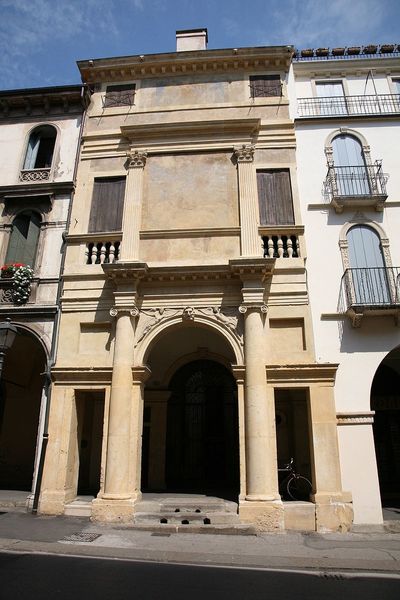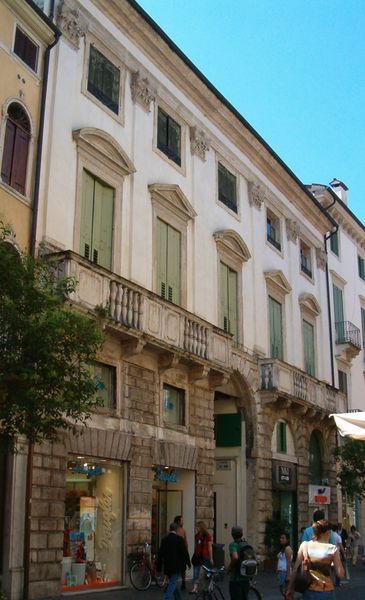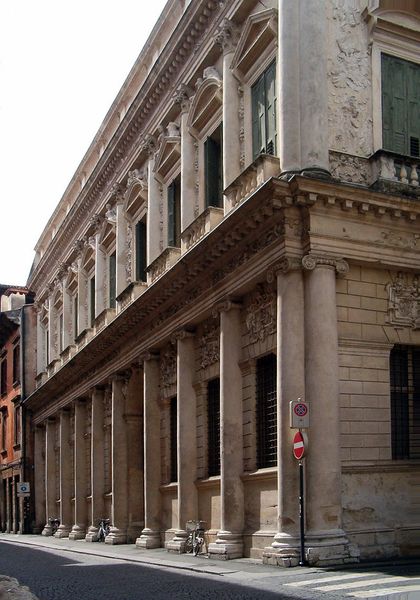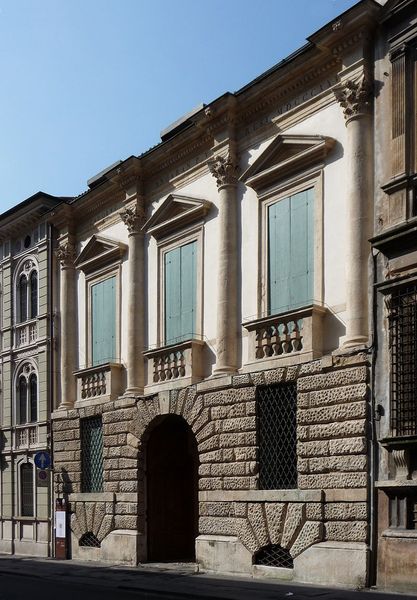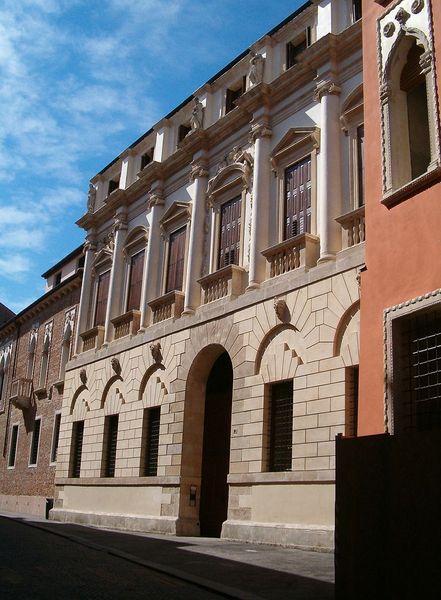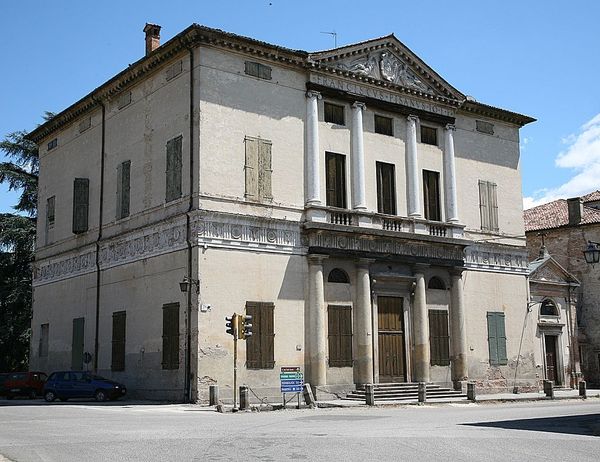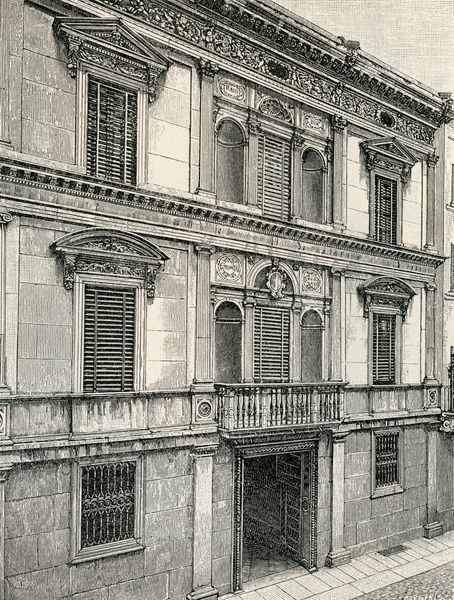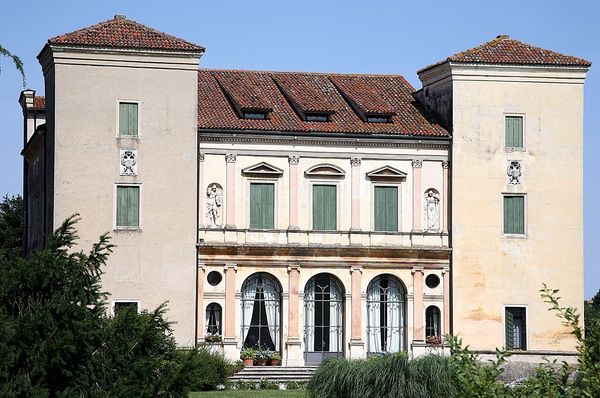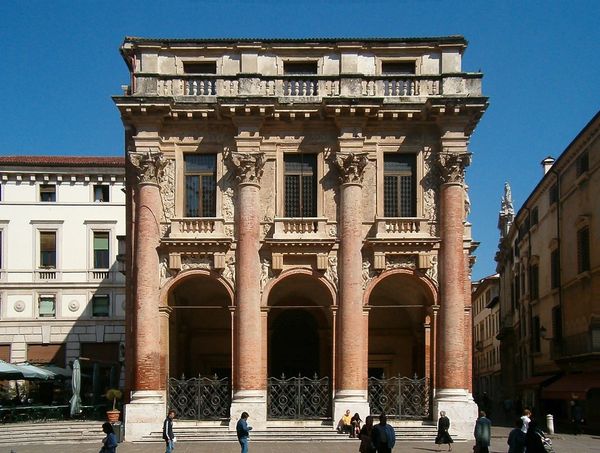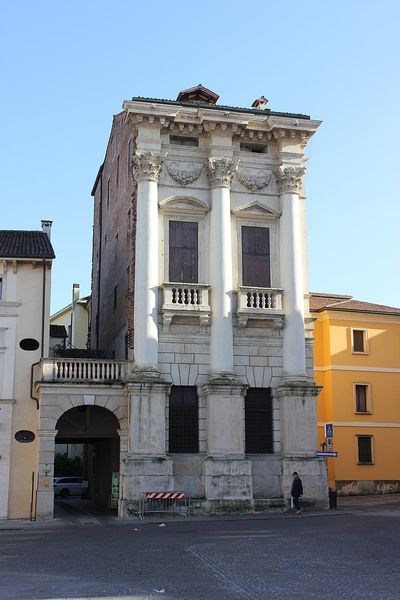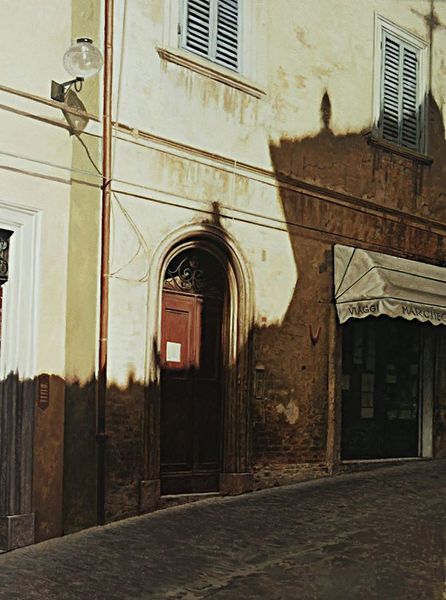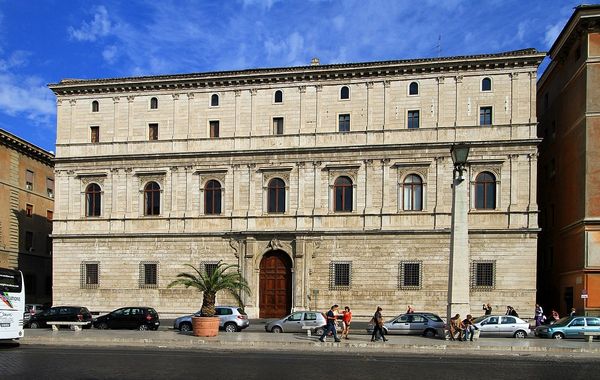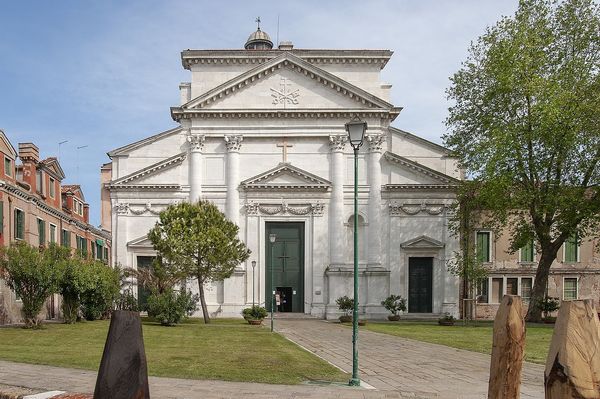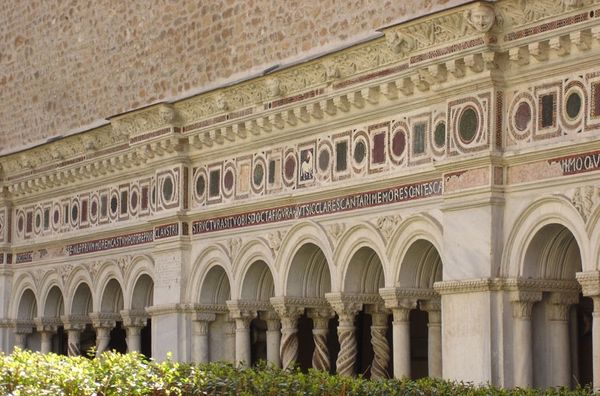
architecture
#
landscape
#
classical-realism
#
geometric
#
italian-renaissance
#
architecture
Copyright: Public domain
The Palazzo Valmarana in Vicenza, Italy, was designed by Andrea Palladio in the mid-16th century, embodying the architectural principles of Renaissance humanism. Palladio drew inspiration from classical antiquity to reshape the urban landscape and reflect the social aspirations of the elite. In this palazzo, we see how Palladio uses a double order of pilasters to articulate the facade, creating a dynamic interplay of light and shadow that also speaks to the importance of the individual within a broader social structure. This architectural language reflects the cultural values of the Venetian Republic, where patronage and civic pride were expressed through monumental construction. To understand Palladio's work, one can explore architectural treatises, archival records, and the social history of the Veneto region. By studying these sources, we can appreciate how Palladio's designs not only transformed the built environment but also reinforced the power structures of his time.
Comments
No comments
Be the first to comment and join the conversation on the ultimate creative platform.
